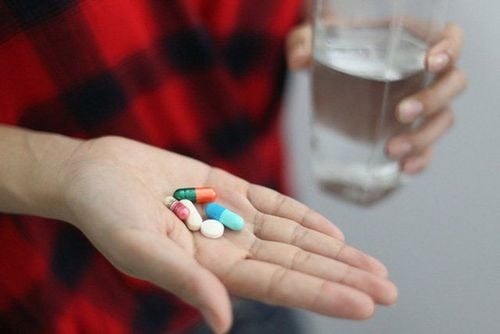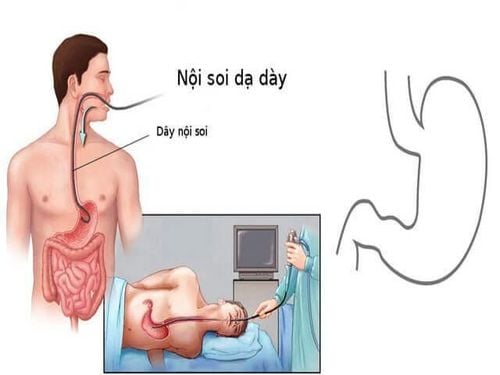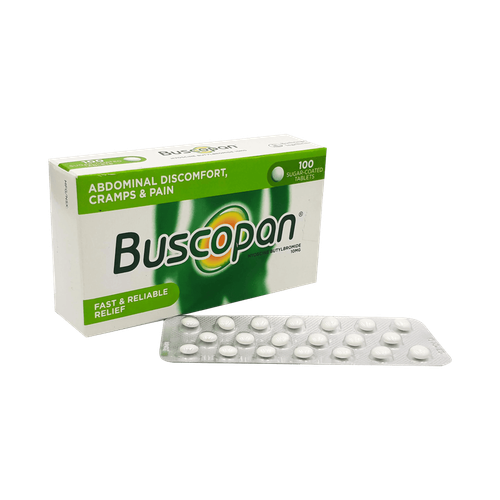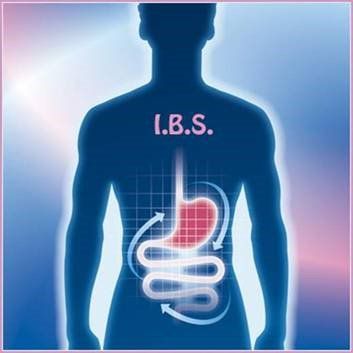This is an automatically translated article.
Article written by MSc Pham Thi Thu Huong - Department of Gastroenterology - Endoscopy - Vinmec Times City International General Hospital
Irritable bowel syndrome (IBS) can cause physical discomfort and emotional distress, but most people can manage their symptoms and live a normal life do not develop serious health problems.
1.Psychotherapy
Stress and anxiety can worsen IBS in some people. The best way to relieve stress and anxiety depends on your condition and the severity of your symptoms. Discuss openly with your doctor the possible role that stress and anxiety may play in your symptoms, and decide together the best course of action.
Some people benefit from psychological counseling, with or without antidepressant or anti-anxiety medication. Other treatments, such as hypnosis and cognitive behavioral therapy, may also be helpful.
Hypnosis is an altered state of consciousness that allows you to focus away from anxiety or stress. The hypnotized patients were not asleep but were actually in a state of heightened imagination, similar to daydreaming. A professional can hypnotize an individual or you can learn self-hypnosis techniques.
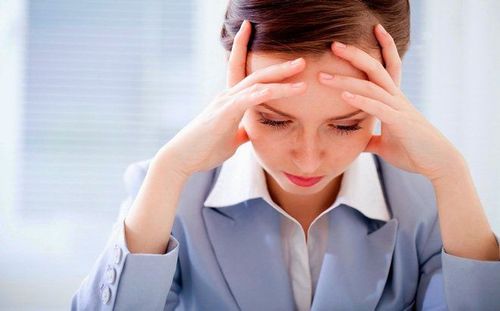
Căng thẳng và lo lắng có thể làm bệnh trở lên trầm trọng thêm
Cognitive behavioral therapy helps you focus on a specific problem for a limited amount of time. You learn how your thoughts contribute to anxiety or stress and learn how to change these thoughts.
Joining a support group can also be valuable. Many patients find that daily exercise is helpful in maintaining health and increasing a sense of well-being. Exercise can also have beneficial effects on the digestive system.
2. Medications for Irritable Bowel Syndrome
Although there are many medications available to treat the symptoms of IBS, these drugs do not cure the condition. They are mainly used to relieve symptoms. The choice between these drugs depends in part on whether your main symptom is diarrhea, constipation, or pain.
As a general rule, medication is reserved for people whose symptoms have not responded adequately to non-pharmacological measures such as dietary changes and fiber supplements... If you need medication, your doctor Your doctor will work with you to choose the right medication for your condition.
2.1 Anticholinergics
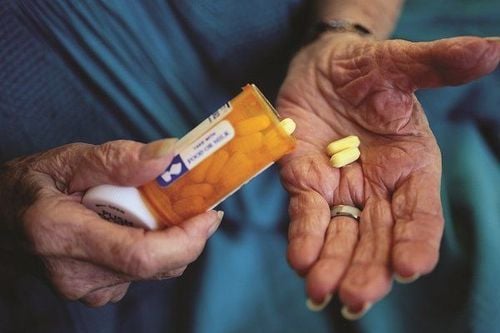
Thuốc kháng cholinergic
Anticholinergics block the nervous system's stimulation of the digestive tract, helping to relieve severe cramps and irregular contractions of the colon.
The drugs in this category include dicyclomine (brand name: Bentyl), hyoscyamine (brand name: Levsin), and peppermint oil packaging (brand name: Mentha XL, IBgard).
These drugs can be especially helpful when used as a precaution (i.e. before you have symptoms) and are therefore most helpful if you can predict the onset of symptoms mine. Common side effects include dry mouth and eyes, blurred vision.
2.2 Antidepressants While primarily used to treat depression, many tricyclics (TCAs) are effective in reducing pain in people with IBS. The dose is usually much lower than that used to treat depression. These drugs are believed to reduce pain when used in low doses, although the exact mechanism of their benefit is unknown.
TCAs commonly used for pain control include amitriptyline (brand names: Elavil, Levate), imipramine (brand names: Tofranil, Impril), desipramine (brand names: Norpramin), and nortriptyline (brand names: Pamelor, Aventyl ).
Often feels tired when starting TCA; This is not always an undesirable side effect, as it can help improve sleep when TCA is done in the evening. TCA is usually started at a low dose and increased gradually. Their full effect may not be seen for three to four weeks.
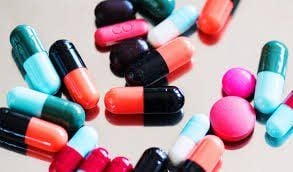
Có nhiều thuốc ba vòng có tác dụng giảm đau ở những người bị IBS
TCA also slows the movement of substances through the digestive tract and may be most helpful in people with IBS that is primarily diarrhea.
Another class of antidepressants, selective serotonin reuptake inhibitors (SSRIs), may be recommended if you have both IBS and depression. Common SSRIs include fluoxetine (brand name: Prozac), sertraline (brand name: Zoloft), paroxetine (brand name: Paxil), citalopram (brand name: Celexa), and escitalopram (brand name: Lexapro).
Other antidepressants that may be recommended include mirtazapine (brand name: Remeron), venlafaxine (brand name: Effexor), and duloxetine (brand name: Cymbalta).
2.3 Diarrhea medications Loperamide (brand name: Imodium) or diphenoxylate-atropine (brand name: Lomotil) can help slow the movement of stool through the digestive tract. These medications are most helpful if you have IBS that is mostly diarrhea.
However, doctors often recommend that these drugs be used only when needed, not continuously. If you take loperamide, be careful never to exceed the dosage on the label unless specifically directed to do so by your doctor. Taking more than the recommended dose has led to serious heart problems in some people.
Eluxadoline (brand name: Viberzi) has been approved to treat IBS diarrhea. You should not take this medicine if your gallbladder has been removed or if you have a disorder of your pancreas or bile ducts.
2.4 The anti-anxiety drugs Diazepam (brand name: Valium), lorazepam (brand name: Ativan), and clonazepam (brand name: Klonopin) belong to this group of drugs. Anti-anxiety medications are sometimes prescribed to people whose short-term anxiety is worsening their IBS symptoms. However, these drugs should only be taken for short periods of time because they can be addictive.

Người bị IBS chủ yếu là tiêu chảy nên sử dụng thuốc làm chậm sự di chuyển của phân qua đường tiêu hóa như thuốc loperamide
2.5 Some other drugs
Alosetron Alosetron (brand name: Lotronex) blocks a hormone that is involved in bowel contractions and sensitivity. The drug is approved to treat women with IBS whose main symptom is diarrhea.
However, it was withdrawn from the market shortly after its introduction due to safety concerns. It was reintroduced and is now available for use in women with severe symptoms unresponsive to conventional treatment, although clinicians must adhere to specific guidelines for prescribing. single.
Lubiprostone Lubiprostone (brand name: Amitiza) is available to treat severe constipation and IBS in women over 18 years of age who have not responded to other treatments. It works by increasing intestinal secretions. However, this drug needs further testing to clarify the long-term efficacy and safety of lubiprostone.
Linaclotide and plecanatide Linaclotide (Linzess) has been approved to treat constipation and IBS in people over 18 years of age who have not responded to other treatments. It works by increasing intestinal secretions. It is more expensive than other drugs (except lubiprostone). Further studies are needed to clarify the long-term efficacy and safety of linaclotide. Plecanatide (brand name: Trulance) is a similar drug; It's also relatively expensive.
Antibiotics The role of antibiotics in the treatment of IBS remains unclear. There are some patients whose IBS symptoms improve with antibiotic treatment. Rifaximin (Xifaxan) has been approved to treat IBS without causing constipation.
3. Herbs and natural remedies

Trà hoa cúc có lợi ích chưa được chứng minh đầy đủ trong việc điều trị IBS
Several herbal and natural therapies have been advertised (especially on the internet) for the treatment of IBS. Unfortunately, there is no evidence of the effectiveness of these therapies.
Although there are some small studies supporting some of these therapies, they are too small or have large biases that make the exact conclusions unconvincing enough to be widely used. Here are some herbal remedies you may have heard of for IBS treatment.
3.1 Unproven Therapies There is increasing interest in the beneficial effects of "healthy" bacteria (probiotics, e.g. acidophilus) in a variety of intestinal diseases, including IBS. Whether supplementing with medications or foods containing these bacteria provides any benefit has not been proven.
Chamomile tea has unproven benefits in the treatment of IBS. Furthermore, chamomile may worsen allergies in people who are prone to grass allergies.
Evening primrose oil (a supplement containing gamma linolenic acid) and fennel seeds are also unproven.
3.2 Some Herbs Possibly Unsafe Wormwood has unproven benefits and may not be safe; Wormwood oil can cause nervous system damage. Bellflower also has unproven benefits and can cause serious liver problems.
Iberogast is an herbal product containing nine extracts from medicinal plants [1]. Although it is believed to be effective in some cases of IBS, several cases of acute liver failure with the use of this herb have been reported.
4. Advice for people with irritable bowel syndrome
It is important to work with your clinician to monitor your symptoms over time. If symptoms change, further testing may be recommended. Over time, less than 5% of people diagnosed with irritable bowel syndrome (IBS) will be diagnosed with another digestive condition.
Please dial HOTLINE for more information or register for an appointment HERE. Download MyVinmec app to make appointments faster and to manage your bookings easily.




